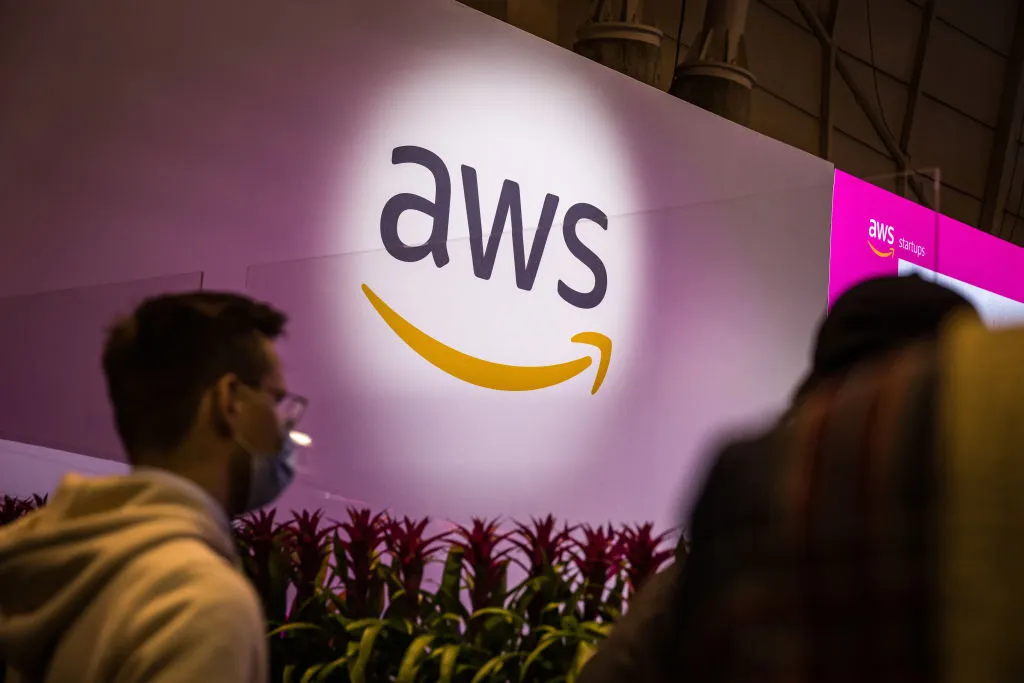In an innovative move to combat climate change, Amazon has announced a partnership with Orbital, an AI startup that specializes in designing advanced materials. This collaboration focuses on testing a cutting-edge material aimed at capturing carbon dioxide (CO2) from the atmosphere at one of Amazon Web Services (AWS) data centers. The partnership marks a significant step in Amazon’s ongoing efforts to meet its climate commitments while leveraging breakthrough technology.
Orbital’s expertise lies in generating a variety of materials that can be used in different sectors, including batteries and semiconductors. By aligning their capabilities with Amazon’s massive infrastructure, they are exploring new frontiers in environmental sustainability. The partnership not only highlights the growing trend of tech companies engaging in carbon capture but also positions Amazon as a leader in the fight against climate change.
The need for CO2 removal is becoming increasingly critical as global temperatures continue to rise. Carbon dioxide is a significant contributor to greenhouse gas emissions, and its reduction is essential for limiting global warming to safe levels. The collaboration between Amazon and Orbital aims to demonstrate how advanced materials can play a vital role in this effort. By capturing CO2 at one of the largest data centers globally, they hope to show that technology can effectively mitigate environmental impact while enhancing operational efficiency.
The core technology developed by Orbital utilizes specialized materials designed specifically to capture carbon dioxide from hot air. Data centers generate substantial amounts of heat due to their cooling systems, which circulate large volumes of air to maintain optimal server temperatures. Orbital’s innovative sorbent material is engineered to work efficiently with this hot air, enabling it to absorb significant quantities of CO2.
The challenge of carbon capture lies in generating adequate airflow for the sorbent material to function effectively. By harnessing the existing airflow systems in data centers, Amazon and Orbital can circumvent some of the primary costs associated with traditional carbon capture methods, making this approach both practical and economically viable.
The deployment of this advanced material will occur at an unnamed AWS data center, where it will undergo rigorous testing. The initial phases will focus on assessing the material’s effectiveness in capturing CO2 under real-world conditions. If successful, this technology could lead to a scalable solution that could be integrated into other facilities within Amazon’s global network.
This partnership is particularly noteworthy because it eliminates the need for intermediaries in carbon markets. By capturing more carbon dioxide than they emit, Amazon could generate carbon credits directly, allowing them to sell these credits without sharing profits with third parties.
The anticipated environmental benefits of this collaboration are significant. By utilizing this new CO2 removal technology, Amazon aims to achieve a meaningful reduction in its carbon footprint. The ability of data centers to capture more carbon dioxide than they generate presents a unique opportunity not only for environmental impact but also for operational sustainability.
As companies face increasing scrutiny regarding their climate commitments, advancements such as these can be pivotal in demonstrating accountability and progress toward emission reduction goals.
Long-Term Benefits for Sustainability Efforts
Beyond immediate carbon capture efforts, the collaboration with Orbital could foster long-term sustainability benefits for Amazon and other tech companies. Successful implementation may pave the way for broader adoption of carbon capture technologies across various industries, setting new benchmarks for environmental responsibility.
This initiative could also inspire other companies to explore innovative solutions for CO2 management, ultimately contributing to a more sustainable future.
If proven effective at AWS data centers, the technology developed by Orbital could scale across Amazon’s extensive infrastructure and potentially beyond. This scalability would not only enhance Amazon’s sustainability efforts but also demonstrate a viable model for other organizations seeking to reduce their carbon footprints.
The adaptability of this technology offers exciting possibilities for various sectors—including manufacturing and logistics—where carbon emissions are significant.
The partnership between Amazon and Orbital may also influence industry standards related to carbon management and sustainability practices. As more companies invest in carbon capture technologies, clear guidelines and best practices will likely emerge, shaping how businesses approach their environmental responsibilities.
This collaboration exemplifies how innovation can drive positive change and set new expectations for corporate accountability in addressing climate change.
Featured image courtesy of TechCrunch

